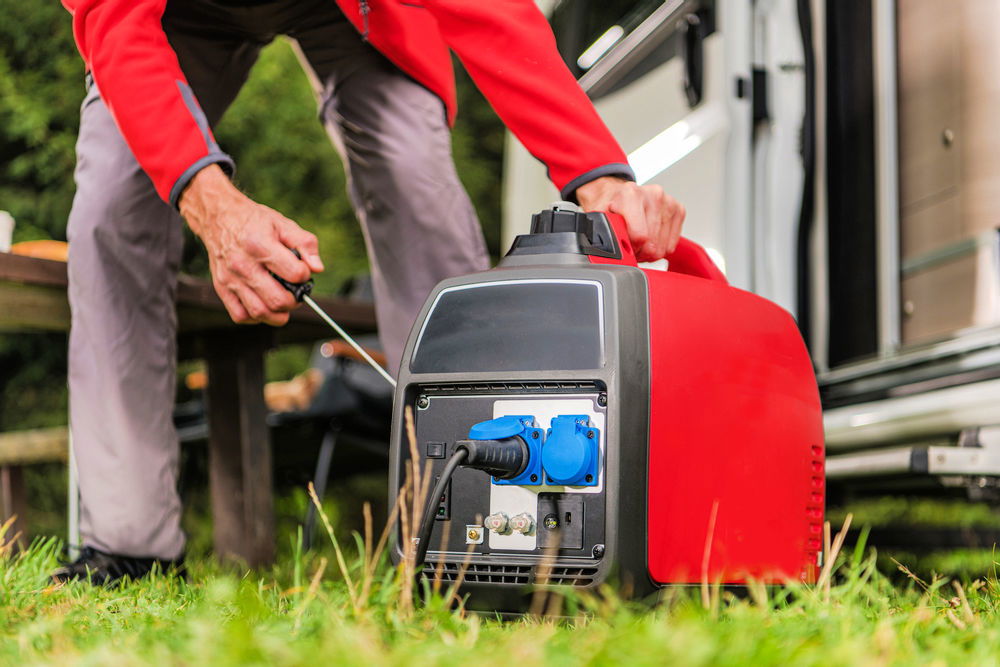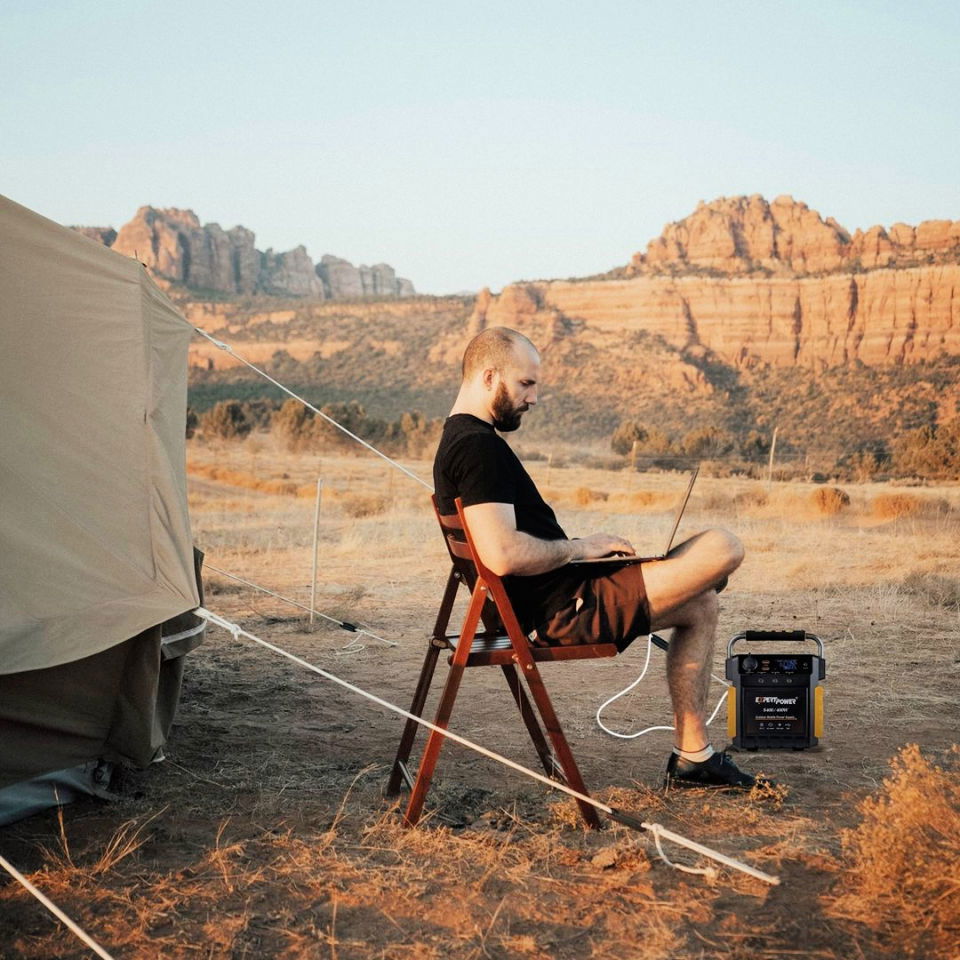When you look for a generator for yourself, there's no doubt that there are a few specific features you'll want to look out for. Some of the features are easily ignored by some.
However, in the long run, not considering the features when getting a portable generator will result in having inconveniences. Hence, you must look out for these features we'll be talking about in our article.
Without any further ado, let's begin.

Features You Need To Consider:
1. Size
First of all, the size of your portable generator is completely dependent on how much power you'll need for your power outlets. There are many appliances you might want to use on your generator.
However, it's essential that you measure your appliances' wattage before you start looking for a generator. Many of the times, you'll see your wattage requirements on the back of your appliance. But, it might not be accurate.
There's a thing called start-up power, which isn't often described on the back of the appliance. All the appliances which come with a motor need start-up power.
You can determine the start-up wattage requirement by multiplying the commonly needed wattage of your appliance by three.
You might also want to look out for a GFCI protected outlet. Most of the time, when you're placing your generator in the outdoors, you'll be needing GFCI protection to avoid the outdoor effect on your generator.
If you plan on directly wiring your generator to the main power lines of your generator, you'll require a 240V plug which most of the time comes with a generator that is more than 4000 watts. Any lower, and you'll have a general 120V AV volt tag along.
2. Clean Power
Everyone gets a generator thinking that they'll probably use every appliance on their house without issues. However, that's not the case. Many sensitive devices such as your laptop, mobile phone, PlayStation, and more will require a much gentler generator.
By gentle, we're referring to something termed as "Total Harmonic Distortion." The THD determines the waveform of your generator. The requirement for the waveform for using sensitive devices is recommended to be kept under six percent. However, you might not get a pure sine wave. Ensure to do some checking on your sensitive equipment and how much their required sine wave is. Generators equipped with Clean Power are more on the pricey side, but they'll prevent the lifespan of your devices from decreasing.
3. Usage
A lot of the decisions about your portable generators are going to depend on your usage. Whether or not you plan to use it for occasional/regular has to be determined before you plan on getting a portable generator.
Generators have a warranty that will cover maintenance if something goes wrong with their internal parts. However, if you plan on using your generator constantly, it's best if you opt for a commercial engine. A commercial machine will serve you right for long hours without causing trouble.
Although, if you plan on using your portable generator only at times of dire need occasionally, you'll need an engine that is made especially for household use. Commercial generators will be more expensive than residential generators, which is one thing to keep in mind.
4. Fuel Type
Gas generators with the most market share. Energy is easily accessible, whether it's sand, water, or oil. Either you should hold fuel or diesel in the tank or in containers with a stabilizer.
As long as you buy an aftermarket diesel engine, you are likely only to earn reasonable fuel efficiency. A whole-house generator requires just gasoline as a source.
To use propane, one can convert an alternate propane generator to propane use. Another approach is biofuels, which utilize plants and plant food directly to create fuel (used in cars).
Battery-powered generators can operate silently, can be recharged at night, and don't emit any contaminants. They are more expensive, take longer to refresh, and they have a small range of around 1600 watts. On all intents and purposes, these options are not feasible.

5. Noise Cancellation
Noise-canceling generators are something that has been on the trend for a while now. Generators tend to make loud noises at every instance. That cannot be very pleasant when you're heading out camping in the outdoors or just having a garden picnic.
When you're looking at portable generators, the finest option is to opt for the best quiet generator. Not only will your neighbors appreciate it, but you will also be able to rest with the little sound coming from your generator.
However, when you move on to a generator that has a fuel consumption of diesel, which are mostly found in 4000-watt and above generators, there will be loud noises. Hence, if noise cancellation is something you want to consider, keep this point in mind.
6. EFI
Electronically-injected gasoline is a huge benefit. The engine removes the need for carburetors and avoids carburetor failure and maintenance costs. Rebuilding is not mandatory, but a clogged carburetor may be a severe concern. The generator will run at higher temperatures more efficiently in cold weather.
7. Carbon Monoxide Detection
Engine pollution monitors carbon monoxide and shuts down if the quantities get too high. They're less likely to get die down than the things you would mount in your home. However, ensure that the exhaust fan is located on the windward side and not in the corner.
The carbon monoxide detectors can be ample for your home as well as your family.
8. Wheel Kit
The generators are obviously going to be heavy. However, they might not come with a wheel kit. Before you buy one, make sure your generator is equipped with a wheel kit, or buy one externally.
Hand assembly can take minutes and can take just a couple of minutes with instruments. You may want to mount the generator yourself, or you may want to have a buddy assist you with the installation.
Conclusion:
Thereby, we hope you have come to know everything about the features you should be considering when handpicking a generator for yourself. Ensure all your needs align with the generator's features when you're choosing one, and you'll be all good to go!

